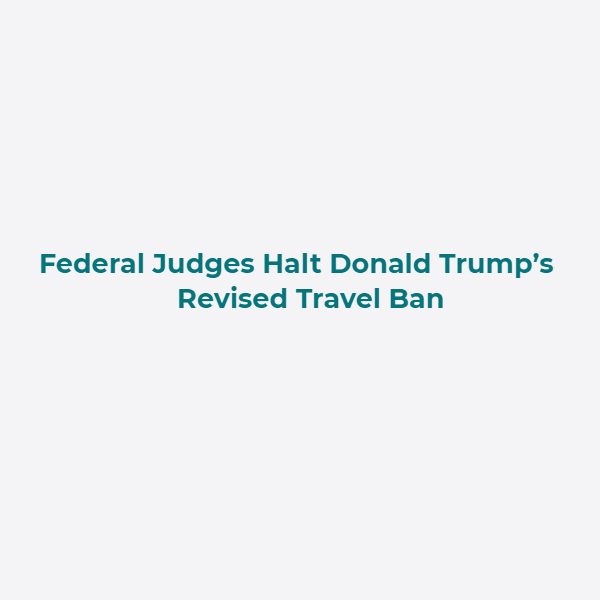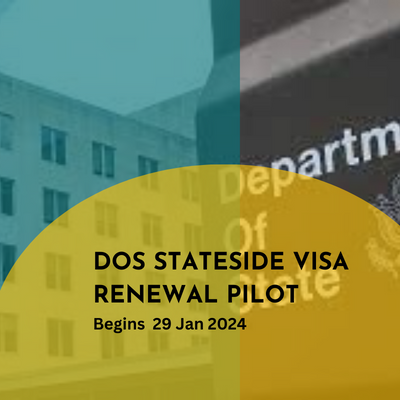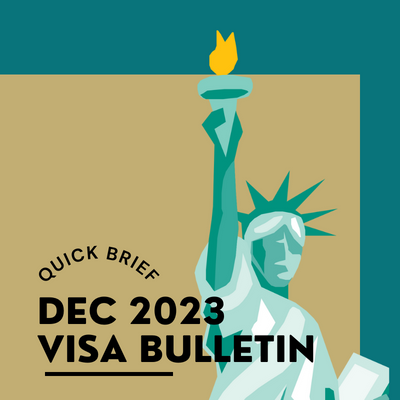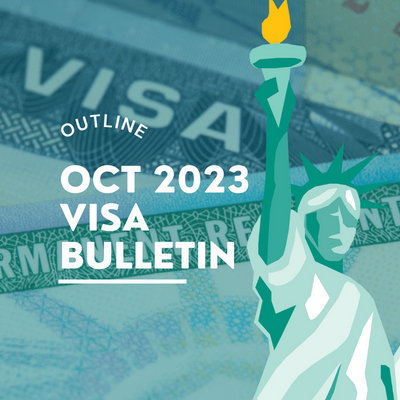A nationwide order issued by Judge Derrick K. Watson on Wednesday, March 15, 2017, temporarily halted the temporary executive order signed by President Donald Trump on Monday, March 6, 2017. This executive order, which Donald Trump has labeled as “a watered-down version of the first one” is a revision of an executive order signed earlier this year entitled “Protecting the Nation from Foreign Terrorist Entry into the United States.” Judge Derrick K. Watson, of the Federal District Court in Honolulu, was the first Judge to halt the new revised executive order. This action was followed by Judge Theodore D. Chuang (an appointee of the previous President, Barack Obama) who ruled to block the most significant part of the revised travel ban – the banning of travel to the United States from the six outlined countries – from being enforced.
Although the revised travel ban is narrower and contains several changes that are meant to satisfy the courts, the federal judge in Hawaii, who halted the travel ban did so, commenting on the fact that the new order still disfavored a particular religion even thoughthe order claims to be religiously neutral. The federal judge in Hawaii also found a dearth of evidence to show that the Muslim majority countries banned poses threats to national security. As such, the judge found the changes made to the revised order not constitutionally significant.
These current federal ruling follows previous rulings suffered by President Donald Trump‘s previous executive order on the travel ban, which was halted by a federal court in Seattle. These are major setbacks against PresidentTrump’s current campaign on immigration, which he has proclaimed as critical for national security. The new travel ban had some of the contentious elements found in the original ban expunged.Also, Iraq is no longer part of the countries banned. However, the new executive order still bans six Muslim-majority countries without providing sufficient evidence to buttress this decision. As such upon the release of the revised travel ban, the AILA did not believe it could withstand legal scrutiny. It, therefore, comes as no surprise that 2 federal judges have ruled against the ban.
Federal Court Rulings Against Trump’s Revised Travel Ban
-
- In the case STATE OF HAWAI‘I and ISMAIL ELSHIKH, Plaintiffs, vs. DONALD J. TRUMP, et al., Defendants, Judge Derrick K. Watson ruled that, plaintiff Ismail Elshikh had judicious grounds to challenge the new order as discriminative based on religion, concluding that the travel ban which went into effect on Thursday would have caused irreparable harm. During the proceeding, the judge singled out the plaintiff, Ismail Elshikh; a United States citizen whose Syrian mother-in-law’s pursuit of a U.S. visa, as an assertion that the revised travel ban would damage him due to his religion. The Judge went on to utterly reject the arguments presented by the government suggesting that the court will have to investigate the President’s “veiled psyche” to infer religious hostility. The judge quoted remarks made PresidentTrump that were mentioned in the lawsuit.
The plaintiff, Ismail Elshikh was pleased with the rulings of Judge Derrick K. Watson, as the processing of the mother-in-law’s visa will not be halted due to the executive order, and more significantly the fact that loved ones and families who are from the six banned countries will not be separated.
-
In the other case in Maryland, Judge Theodore D. Chuang did not block the entire revised executive order from being enforced, however, he ruled against the banning of travel to the United States from the six banned countries from going into effect. Judge Theodore D. Chuang, concluded that there were strong indications based on President Trump’s public comments that national security is not the main reason for the executive order and that PresidentTrump may have sought to infringe upon the constitutional prohibition on religious preferences.
- In the case STATE OF HAWAI‘I and ISMAIL ELSHIKH, Plaintiffs, vs. DONALD J. TRUMP, et al., Defendants, Judge Derrick K. Watson ruled that, plaintiff Ismail Elshikh had judicious grounds to challenge the new order as discriminative based on religion, concluding that the travel ban which went into effect on Thursday would have caused irreparable harm. During the proceeding, the judge singled out the plaintiff, Ismail Elshikh; a United States citizen whose Syrian mother-in-law’s pursuit of a U.S. visa, as an assertion that the revised travel ban would damage him due to his religion. The Judge went on to utterly reject the arguments presented by the government suggesting that the court will have to investigate the President’s “veiled psyche” to infer religious hostility. The judge quoted remarks made PresidentTrump that were mentioned in the lawsuit.
These rulings have gone a long way to prove the importance of the judiciary system in the safeguarding of the American constitution and system of governance.
Image Credits :NewYorker.com






